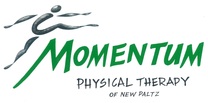|
What is every 2 year old's favorite question? "Why?" Inquisitive toddlers have a lot to say and even more to ask. Why do you eat that? Why do you run? Why this? Why that? They are like little scientists wanting to know why their world works the way it does. They want to know the reason behind something and "just because" is not a good enough answer for them. It is this kind of inquisitiveness that we should always nurture within ourselves allowing us to remain the scientists that we start out as. The reason this comes to mind is the staggering amount of information (and misinformation) that is now accessible to so many people through the creation of the world wide web. It is open to anyone (like myself) who wants to share knowledge, opinions, expertise, etc. to the masses. Unfortunately, this is a double edged sword. On the one hand, you have more access to excellent resources on any topic you can possibly think of. On the other hand, you have the same access to questionable resources and information about those same topics which is very concerning. Since this is the case, asking "why" like a two year old to make sure something makes sense will prove to be very beneficial instead of just accepting something at face value. This is most definitely the case with the health, fitness, rehab and nutrition worlds. There is no shortage of dubious information, outrageous claims and downright zealotry about health and the human body. Perhaps I am becoming more critical of what I read on the internet as I continue to practice as a physical therapist and do my best to keep up with current evidence and literature but it seems as if the frequency of questionable (and just plain wrong) articles and headlines I come across on a daily basis is increasing. This becomes incredibly dangerous with social media's capacity to disseminate information so you get all sorts of myths (and truths, thank goodness) spreading like wildfire. Despite countless individuals and organizations doing their best to discount bad information, beliefs continue to persist and get in the way of facts. There also continues to be this idea that "But I read something or I saw something online" equals truth. It reminds me of this commercial: Not everything on the internet is true. Somehow it has become the media's job to sell stories and latch on to hot topics rather than report and publish legitimate information as objectively as possible. Bloggers (like me), writers and "experts" among many others are trying to gain visibility within their respective fields in a very crowded health landscape and although the majority of intentions are good, it still does not make something true. Just because everyone is posting on Facebook does not make something true. And just because someone has some letters after their name also does not make something true. With all of this in mind, I strongly encourage you to read and listen with caution and to question everything (including me) as a two year old would. Why? Does that make sense? If I don't sit straight all of the time, I'll develop low back pain?! Gluten is the devil?! (I'll answer those last two for you: No and no.) Take a few minutes to double check what you read and listen to, and seek out credible and reliable sources so that you can truly make healthy and informed decisions. Like that old saying goes, if it's too good to be true, then it probably is. Knowledge = Power; Share The Power:
0 Comments
Leave a Reply. |
Dr. Greg Cecere
Your personal physical therapist, movement educator and knowledge dispenser. Newsletter Sign Up
Enter your name and email to get Momentum PT's Movement Manual delivered straight to your inbox! It's your free monthly newsletter and guide to moving better, feeling better and living better! Archives
April 2017
Categories
All
Disclaimer:
The contents of this blog is meant for educational purposes only. Momentum Physical Therapy of New Paltz and Dr. Greg Cecere are not responsible for any harm or injury that may occur due to any information on this blog as it is by no means a substitute for a thorough evaluation by a medical professional. |
|
Momentum Physical Therapy of New Paltz, PLLC. Copyright © 2013-2024. All Rights Reserved.
Disclaimer: The contents of this site is meant for educational purposes only and utilization of any of the material is a personal choice. Momentum Physical Therapy of New Paltz and Dr. Greg Cecere are not responsible for any harm or injury that may occur due to those choices. This site is by no means a substitute for a thorough evaluation and guidance by a licensed medical professional.
|

 RSS Feed
RSS Feed
